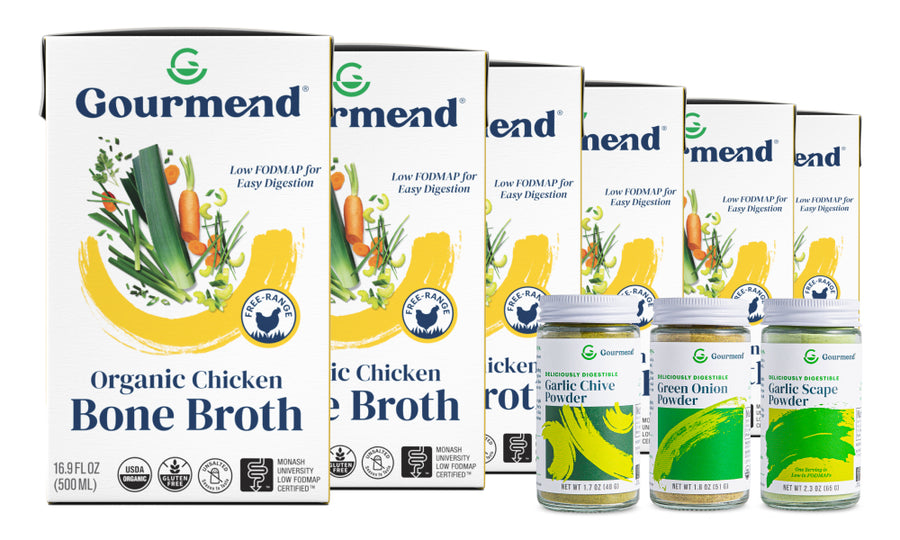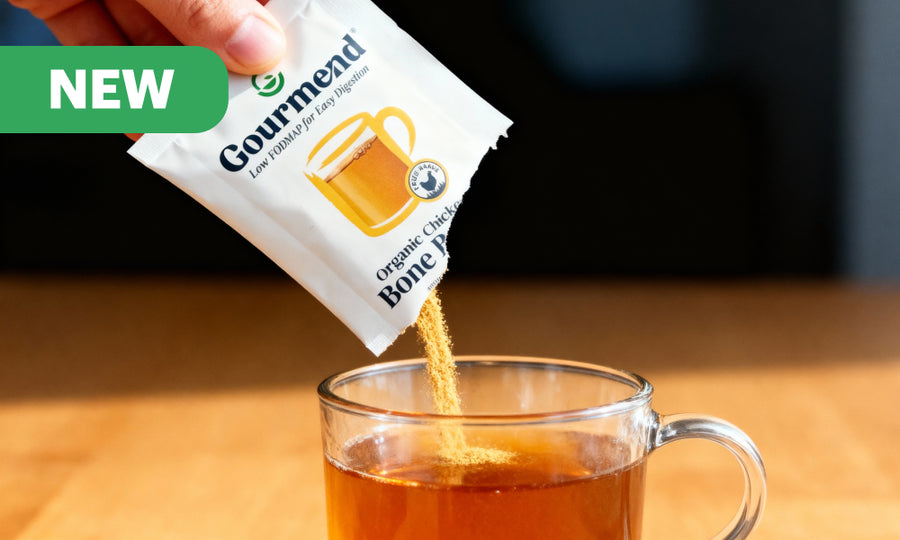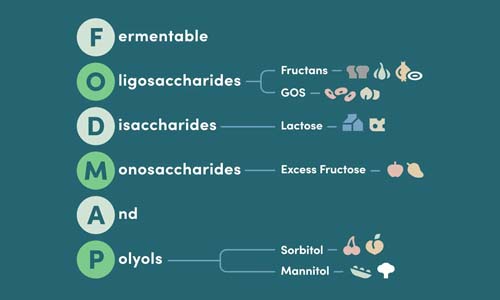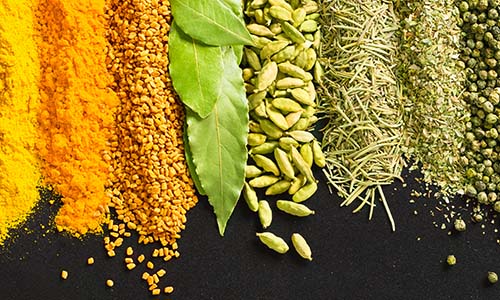Are Carrots Low FODMAP: Complete Guide for IBS Relief
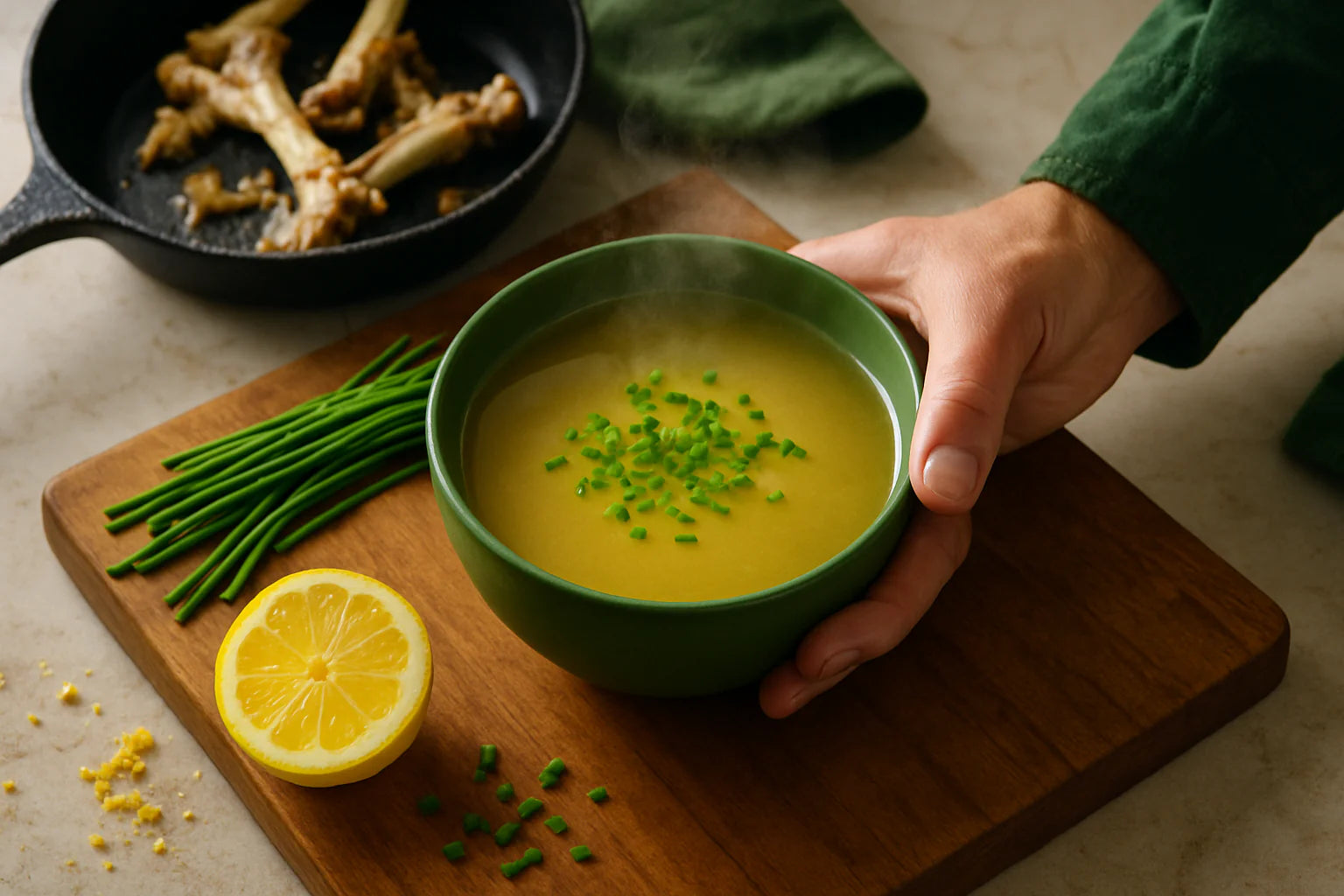
Quick Answer
Yes, carrots are low FODMAP and can be enjoyed freely on a low FODMAP diet. Orange and yellow carrots contain virtually no FODMAPs and are safe up to 500g per meal according to Monash University research. For more details, see this comprehensive guide on carrots and FODMAPs.
Key Takeaways
- Carrots are low FODMAP and suitable for a low FODMAP diet.
- Orange and yellow carrots contain virtually no FODMAPs.
- Up to 500 grams of carrots per meal is considered safe according to Monash University.
- Carrots can be enjoyed freely without triggering IBS symptoms related to FODMAPs.
Table of Contents
- Quick Answer
- Understanding FODMAPs and the Low FODMAP Diet
- Carrots and the Low FODMAP Diet
- Nutritional Benefits of Carrots
- How to Enjoy Carrots on a Low FODMAP Diet
- Recipe Inspiration: Low FODMAP Carrot Ideas
- Carrots in Context: Other Low FODMAP Vegetables
- Common Questions About Carrots and FODMAPs
- Practical Tips for Following a Low FODMAP Diet with Carrots
- Advanced Insights: Carrots and Gut Health
- Embracing Carrots in Your Low FODMAP Journey
If you're navigating the low FODMAP diet for IBS relief, you've probably found yourself scrutinizing every ingredient that goes into your meals. The good news? Carrots are one of the most reliable, gut-friendly vegetables you can count on.
With two-thirds of Americans experiencing digestive issues and nearly 1 billion people worldwide living with IBS, understanding which foods support digestive comfort has never been more important. Carrots not only pass the low FODMAP test with flying colors—they're also packed with nutrients that support overall health without triggering uncomfortable symptoms. For more on the basics of FODMAPs, check out our FODMAP blog.
In this comprehensive guide, we'll explore everything you need to know about carrots and the low FODMAP diet, from serving sizes to cooking methods, plus practical ways to incorporate these vibrant vegetables into your daily meals.
Understanding FODMAPs and the Low FODMAP Diet
What are FODMAPs?
FODMAPs stands for Fermentable Oligosaccharides, Disaccharides, Monosaccharides, and Polyols—a group of short-chain carbohydrates that can be poorly absorbed in the small intestine. When these compounds reach the large intestine, they ferment and can trigger digestive symptoms including:
- Bloating and abdominal distension
- Gas and flatulence
- Cramping and abdominal pain
- Diarrhea or constipation
- General digestive discomfort
Key Fact: Research shows that up to 75% of people with IBS experience significant symptom improvement when following a low FODMAP diet under proper guidance.
How the Low FODMAP Diet Works
The low FODMAP approach follows a structured three-phase process designed to identify your personal trigger foods while maintaining nutritional balance:
- Elimination Phase: Remove high FODMAP foods for 2-6 weeks to allow symptoms to settle
- Reintroduction Phase: Systematically test individual FODMAP groups to identify personal triggers
- Personalization Phase: Create a long-term eating plan based on your individual tolerance levels
The goal isn't to eliminate FODMAPs forever—it's to understand your unique digestive needs and create a sustainable way of eating that supports both gut comfort and nutritional wellness.
Carrots and the Low FODMAP Diet
Are carrots low FODMAP? Absolutely. Carrots are naturally free of FODMAPs and are considered one of the safest vegetables for people following a low FODMAP diet. For another perspective, see this dietitian's review of carrots and FODMAPs.
Carrot FODMAP Status Confirmed
According to Monash University—the leading research institution behind low FODMAP diet development—orange and yellow carrots are completely low FODMAP in servings up to 500g per meal. This generous serving size means you can enjoy carrots freely without worrying about triggering digestive symptoms.
Important Note: While orange and yellow carrots get the green light, purple and white carrot varieties haven't been tested by Monash University and should be avoided unless specifically verified as low FODMAP.
Forms of Carrots on the Low FODMAP Diet
Here's the thing: cooking methods don't change the FODMAP content of carrots. Whether you prefer them raw, cooked, juiced, or even pickled, carrots remain low FODMAP as long as no high FODMAP ingredients are added during processing.
| Carrot Form | Low FODMAP Status | What to Watch For |
|---|---|---|
| Fresh raw carrots | ✅ Yes | Always safe |
| Cooked carrots | ✅ Yes | Avoid garlic/onion seasonings |
| Carrot juice | ✅ Yes | Check for added ingredients |
| Canned carrots | ⚠️ Check labels | Avoid garlic/onion in brine |
| Pickled carrots | ⚠️ Check labels | Verify pickling ingredients |
Forms of Carrots on the Low FODMAP Diet
Here's the thing: cooking methods don't change the FODMAP content of carrots. Whether you prefer them raw, cooked, juiced, or even pickled, carrots remain low FODMAP as long as no high FODMAP ingredients are added during processing.
- Raw carrots: Perfect for snacking, salads, and crudité platters
- Cooked carrots: Roasted, steamed, sautéed, or boiled—all maintain their low FODMAP status
- Carrot juice: Fresh-pressed or store-bought (check labels for added ingredients)
- Canned carrots: Low FODMAP if processed without garlic, onion, or other high FODMAP additives
- Pickled carrots: Safe when pickled in vinegar without high FODMAP seasonings
Label Reading Tip: Always check processed carrot products for sneaky high FODMAP ingredients like garlic powder, onion powder, or natural flavors that might contain FODMAPs.
Nutritional Benefits of Carrots
Why Include Carrots in Your Diet?
Beyond being carrot low FODMAP, these vibrant vegetables pack serious nutritional punch that supports overall health and digestive wellness:
- Beta-Carotene & Vitamin A
- Essential for eye health, immune function, and skin health. One medium carrot provides over 100% of your daily vitamin A needs.
- Dietary Fiber
- Supports healthy digestion and gut microbiome balance—crucial for long-term digestive health.
- Potassium
- Important for heart health and proper muscle function, including digestive muscle contractions.
- Antioxidants
- Help reduce inflammation throughout the body, potentially supporting gut healing.
Gut Health Bonus: The fiber in carrots acts as a prebiotic, feeding beneficial gut bacteria without triggering FODMAP-related symptoms.
How to Enjoy Carrots on a Low FODMAP Diet
Ways to Use Carrots
The beauty of carrots being low FODMAP is their incredible versatility. Here are our favorite ways to incorporate them into gut-friendly meals:
As a Snack
Raw carrot sticks pair beautifully with low FODMAP dips. Try them with lactose-free yogurt mixed with chives, or a simple olive oil and herb drizzle.
In Salads
Grated or julienned carrots add natural sweetness and satisfying crunch to any salad. They're particularly delicious in Asian-inspired slaws with rice vinegar and sesame oil. For more salad inspiration, visit our Low FODMAP Recipes blog.
Cooked Dishes
Roasted carrots develop deep, caramelized flavors that make them shine as a side dish. Try tossing them with olive oil, fresh herbs, and a sprinkle of our low FODMAP seasonings for restaurant-quality results at home.
Soups and Stews
Carrots add natural sweetness and body to broths without any FODMAP concerns. They're a staple in our low FODMAP recipe collection, where they often serve as the flavor base alongside our gut-friendly bone broths.
Pro Tip: When building flavor bases for soups and stews, we combine diced carrots with the green parts of scallions and chives instead of traditional onions and garlic. This creates incredible depth without triggering digestive discomfort.
Recipe Inspiration: Low FODMAP Carrot Ideas
Ready to get creative in the kitchen? These carrot FODMAP-friendly recipes showcase just how delicious gut-friendly cooking can be:
Warming Carrot Ginger Soup
This velvety soup combines the natural sweetness of carrots with warming ginger and our organic vegetable broth. The result is a comforting bowl that's gentle on digestion while delivering gourmet flavor.
- Made with Gourmend's low FODMAP vegetable broth
- Fresh ginger adds warmth without irritation
- Coconut milk creates luxurious texture
- Garnished with chives for fresh flavor
Roasted Carrot and Quinoa Salad
This hearty salad transforms simple ingredients into something special. Roasted carrots become sweet and caramelized, while quinoa provides protein and satisfying texture.
- Quinoa is naturally low FODMAP and gluten-free
- Lemon zest brightens the entire dish
- Fresh herbs add aromatic complexity
- Perfect for meal prep and packed lunches
Crispy Carrot Fritters
These golden fritters prove that carrots low FODMAP cooking can be both indulgent and gut-friendly. Grated carrots bind with eggs and herbs for a satisfying appetizer or light meal.
- Scallion greens replace traditional onions
- Pan-fried until golden and crispy
- Served with yogurt-chive dipping sauce
- Great for using up excess carrots
Carrot Rice Pilaf
This colorful side dish elevates plain rice into something extraordinary. Finely diced carrots cook alongside rice, infusing every grain with subtle sweetness.
- Uses our chicken bone broth for rich flavor
- Turmeric adds golden color and anti-inflammatory benefits
- Toasted pine nuts provide textural contrast
- Pairs beautifully with grilled proteins
Fresh Carrot Juice Blend
Start your day with this nutrient-packed juice that's naturally low FODMAP and energizing. The combination of carrots, ginger, and citrus creates a refreshing morning boost.
- 100% natural with no added sugars
- Fresh ginger supports digestive health
- Lemon adds brightness and vitamin C
- Perfect for sensitive stomachs
Recipe Success Tip: Need help converting your favorite carrot recipes to be low FODMAP? Check out our Low FODMAP Recipe Conversion Tool—it's designed to help you adapt any recipe while maintaining incredible flavor.
Carrots in Context: Other Low FODMAP Vegetables
Building Your Low FODMAP Vegetable Toolkit
While carrots are low FODMAP and incredibly versatile, they're just one piece of your gut-friendly vegetable arsenal. Here are other reliable options that pair beautifully with carrots:
| Vegetable | Serving Size | Best Cooking Methods | Pairs Well With Carrots |
|---|---|---|---|
| Zucchini | 1 cup diced | Sautéed, grilled, spiralized | Excellent in stir-fries and soups |
| Spinach | 1 cup fresh | Raw, wilted, steamed | Perfect in carrot-based salads |
| Bell Peppers | 1 medium pepper | Roasted, raw, stuffed | Great color contrast in dishes |
| Bok Choy | 1 cup chopped | Stir-fried, steamed | Asian-inspired carrot dishes |
| Eggplant | 1/3 cup cubed | Roasted, grilled, baked | Mediterranean carrot preparations |
Combination Strategy: The key to satisfying low FODMAP meals is combining these vegetables thoughtfully. Carrots provide natural sweetness that balances the earthiness of eggplant or the slight bitterness of leafy greens.
When planning meals, think about how different vegetables complement each other in terms of flavor, texture, and color. Carrots work particularly well as a base ingredient because their natural sweetness enhances other vegetables without overwhelming delicate flavors. For more creative low FODMAP meal ideas, explore our Ultimate Low FODMAP Frittata recipe.
Common Questions About Carrots and FODMAPs
Are baby carrots, purple carrots, or white carrots low FODMAP?
Baby carrots and regular orange carrots are low FODMAP, but purple and white carrot varieties should be avoided unless specifically tested. Monash University has only confirmed orange and yellow carrots as safe for the low FODMAP diet.
Here's what we know about different carrot varieties:
- Baby Carrots (Orange)
- These are simply regular orange carrots cut into smaller pieces. They maintain the same low FODMAP status as full-size orange carrots.
- Purple Carrots
- While nutritious and colorful, purple carrots haven't been tested by Monash University and may contain different FODMAP levels. Best to avoid during elimination phases.
- White Carrots
- Similarly untested and potentially higher in FODMAPs. Stick with orange varieties to be safe.
- Yellow Carrots
- Confirmed low FODMAP by Monash University, making them a safe alternative to orange carrots.
Does cooking or pickling change the FODMAP content?
The good news is that cooking methods don't alter the FODMAP content of carrots. Whether you roast, steam, boil, sauté, or even pickle them, carrots remain low FODMAP as long as you don't add high FODMAP ingredients during preparation.
Processing Tip: The FODMAP risk comes from what you add to carrots, not how you prepare them. Always check seasonings, marinades, and canning liquids for hidden high FODMAP ingredients.
How much carrot can I eat on the low FODMAP diet?
Monash University research shows that carrots low FODMAP status holds strong even at large serving sizes. Up to 500g per meal is considered safe for orange carrots—that's roughly 5-6 large carrots, which is more than most people would eat in one sitting.
Practical Reality: Most people consume 1-2 carrots per meal, well below the tested limit. This generous serving size makes carrots one of the most reliable vegetables for meal planning on a low FODMAP diet.
Are canned carrots low FODMAP?
Canned carrots can be low FODMAP, but you need to read labels carefully. Plain canned carrots in water or salt water are typically safe, but many canned vegetables include flavor enhancers that can trigger symptoms.
- Garlic powder or granules: High FODMAP and commonly added
- Onion powder: Another frequent high FODMAP additive
- Natural flavors: May contain FODMAP compounds
- Celery seed: Can be problematic in larger amounts
Practical Tips for Following a Low FODMAP Diet with Carrots
Label Reading and Shopping Strategies
Smart shopping makes following a low FODMAP diet much easier. When it comes to carrot FODMAP considerations, fresh whole carrots are always your safest bet, but processed carrot products can work too with careful label reading. For more tips and learning resources, visit our Learn blog.
Shopping Strategy: We always recommend starting with fresh, whole carrots when possible. They're typically more affordable than processed options and give you complete control over preparation methods and added ingredients.
What to Look for on Labels
- Ingredient lists under 5 items: Simpler is usually better
- No garlic or onion derivatives: Including powders, granules, or extracts
- Avoid "natural flavors": These can hide FODMAP-containing compounds
- Check seasoning blends: Many contain high FODMAP ingredients
Combining Diets for Maximum Flexibility
One of the beautiful aspects of carrots being low FODMAP is how well they fit into other dietary patterns. Whether you're managing multiple food sensitivities or following specific eating styles, carrots adapt beautifully.
| Dietary Pattern | Carrot Compatibility | Best Applications |
|---|---|---|
| Gluten-Free | Naturally gluten-free | Carrot-based pasta alternatives, baked goods |
| Vegan/Vegetarian | Plant-based and versatile | Protein-rich salads, hearty soups with our vegetable broth |
| Mediterranean | Traditional ingredient | Roasted with olive oil and herbs, mezze platters |
| Paleo/Whole30 | Whole food compliant | Roasted vegetables, compliant soups and stews |
Building Flavor Without High FODMAP Ingredients
Here's where carrots really shine in low FODMAP cooking. Their natural sweetness helps create the flavor foundation that onions and garlic typically provide in conventional cooking.
Flavor Base Formula: Diced carrots + scallion greens + chives + quality broth = incredible depth without digestive distress. This combination works in everything from soups to stir-fries.
We use this approach throughout our low FODMAP recipe collection, where carrots often serve as the sweet foundation that balances savory herbs and our gut-friendly bone broths.
Meal Prep and Storage Tips
Carrots are incredibly meal-prep friendly, maintaining their nutritional value and low FODMAP status whether stored raw or cooked.
- Raw carrots: Store in refrigerator for up to 3 weeks, cut pieces last 2-3 days
- Cooked carrots: Refrigerate for 5-7 days, freeze for up to 6 months
- Carrot juice: Best consumed within 24 hours for optimal nutrition
- Batch cooking: Roast large quantities on weekends for easy weekday meals
Advanced Insights: Carrots and Gut Health
The Prebiotic Power of Carrots
Beyond being carrots low FODMAP, these vegetables offer unique gut health benefits that support long-term digestive wellness. The fiber in carrots acts as a prebiotic, feeding beneficial gut bacteria without triggering the fermentation issues associated with high FODMAP foods.
Research Insight: Studies show that the specific type of fiber in carrots (pectin) can help strengthen the gut barrier and support healthy inflammatory responses in the digestive system.
This makes carrots particularly valuable during the reintroduction phase of the low FODMAP diet, when you're working to rebuild a healthy gut microbiome while maintaining symptom control.
Seasonal Considerations and Variety
Fresh carrots are available year-round, but their flavor and nutritional content can vary by season. Understanding these variations helps you get the most from your carrot FODMAP-friendly meal planning.
- Spring Carrots (March-May)
- Young, tender carrots with delicate flavor. Perfect for raw applications and light cooking methods.
- Summer Carrots (June-August)
- Peak sweetness and crunch. Excellent for fresh juicing and cold salads.
- Fall/Winter Carrots (September-February)
- Mature carrots with concentrated flavor. Ideal for roasting, soups, and hearty stews with our bone broths.
Troubleshooting Common Issues
Even though carrots are low FODMAP, some people experience digestive discomfort when eating them. Here's how to troubleshoot:
If you experience issues with carrots: The problem likely isn't the carrots themselves but rather what they're prepared with, eaten alongside, or individual tolerance to high-fiber foods. Try eating smaller portions, cooking them well, or checking for cross-contamination with high FODMAP ingredients.
Remember, individual tolerance can vary even with low FODMAP foods. Keep a food diary and work with a qualified dietitian if you're experiencing unexpected symptoms.
Embracing Carrots in Your Low FODMAP Journey
The answer to "are carrots low FODMAP" is a resounding yes—and that's fantastic news for anyone managing IBS or digestive sensitivities. Carrots low FODMAP status, combined with their incredible versatility and nutritional benefits, makes them one of the most reliable vegetables in your gut-friendly toolkit.
Key Takeaway: With up to 500g per meal considered safe by Monash University research, you can enjoy carrots confidently in virtually unlimited quantities while following a low FODMAP diet.
From simple snacks to gourmet soups made with our organic, low FODMAP broths, carrots offer endless possibilities for creating satisfying, symptom-free meals. Their natural sweetness helps replace the flavor complexity typically provided by onions and garlic, making them essential for building delicious low FODMAP dishes.
Whether you're just starting your low FODMAP journey or looking to expand your recipe repertoire, carrots provide the perfect foundation for confident, flavorful cooking. Try our Low FODMAP Recipe Conversion Tool to transform your favorite carrot recipes into gut-friendly versions, and explore our complete recipe collection for more inspiration.
Remember: the low FODMAP diet isn't about restriction—it's about discovering how delicious and satisfying gut-friendly eating can be. Carrots are proof that you don't have to compromise on flavor or nutrition to feel your best.
Check out our Low Fodmap Organic Vegetable Broth
Frequently Asked Questions
Are carrots ok for IBS?
Yes, carrots are generally well tolerated by people with IBS. They are low in FODMAPs and provide fiber and nutrients without triggering digestive symptoms, making them a great vegetable choice for sensitive stomachs.
How much carrot is low in FODMAP?
A serving of about 75 grams (roughly one medium carrot) is considered low FODMAP and unlikely to cause symptoms. Larger portions may increase oligosaccharides that some people with IBS might find harder to digest.
What vegetables are not allowed on FODMAPs?
Vegetables high in FODMAPs include onion, garlic, cauliflower, asparagus, mushrooms like button and portobello, and certain beans and legumes. These can ferment in the gut and trigger IBS symptoms, so they’re best avoided or limited on a low FODMAP plan.
Are cooked carrots difficult to digest?
Cooked carrots are actually easier to digest than raw ones because cooking softens their fiber. This makes them gentle on the gut and a good option during IBS flare-ups or when you want a soothing, nutrient-rich vegetable.
What food calms an IBS flare-up?
Foods that are gentle on digestion and low in FODMAPs help calm IBS flare-ups. Think simple, easy-to-digest options like bone broth, cooked carrots, rice, and low FODMAP fruits like bananas. These nourish without overstimulating the gut.
Is peanut butter low in FODMAP?
Yes, natural peanut butter in moderate amounts is low FODMAP and usually well tolerated. Stick to a serving of about 2 tablespoons to avoid excess fructans or added high FODMAP ingredients often found in processed versions.
